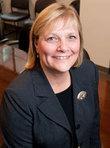PEHSU Grand Rounds Webinar
This webinar is part of an ongoing series of educational presentations by experts on issues that focus on current and emerging aspects of pediatric and reproductive environmental health.
Perfluoroalkyl substances (PFAS): Potential sources of exposures, potential health impacts, and guidance for clinicians
Course Description
Drinking water contaminated with perfluoroalkyl substances (PFAS) has been a recurrent problem in communities across the US. But many healthcare providers and public health professionals know little about these substances, and the data surrounding exposure and potential health risks can be confusing. This webinar will present information on what is a perfluoroalkyl substance, where they are found, common exposure pathways, potential health impacts for children and on reproductive health, and implications for clinicians.
Learning Objectives
- Define the chemical family of perfluoroalkyl substances (PFAS) and where they can be found.
- Outline the scope of potential exposure across the United States.
- Describe potential health impacts in children.
- Discuss implications for clinicians.
Presenters
Laura Anderko, PhD, RN
 Director, Mid-Atlantic Center for Children's Health & the Environment
Director, Mid-Atlantic Center for Children's Health & the Environment Georgetown University
Region 3 PEHSU
 Director, Great Lakes Center for Children’s Environmental Health
Director, Great Lakes Center for Children’s Environmental HealthDr. Susan Buchanan is board certified in Family Medicine and Occupational and Environmental Medicine. She is a professor at the University of Illinois at Chicago (UIC) where she teaches occupational and environmental health topics in the Occupational Medicine Residency Program, Family Medicine Department, School of Public Health. She is also Director of the Great Lakes Center for Children’s Environmental Health, which is the Pediatric Environmental Health Specialty Unit (PEHSU) for federal Region 5. In this role she receives inquiries on patients exposed to PFAS. Dr. Buchanan participates in webinars, updates and conversations within the PEHSU network on addressing PFAS exposure.
Alan Woolf, MD, MPH, FAAP, FAACT, FACMT
 Director, New England Pediatric Environmental Health Specialty Units
Director, New England Pediatric Environmental Health Specialty UnitsThis course qualifies as continuing education for physicians, nurses, certified health education specialists and other professionals provided by the Centers for Disease Control and its partners.
In order to receive continuing education (CE) for WD2588-031418 - (Webcast) PEHSU Grand Round Series - Perfluoroalkyl substances (PFAS): Potential sources of exposures, potential health impacts, and guidance for clinicians - March 14, 2018, please visit TCEO and follow these 9 Simple Steps by April 17, 2020.
ACCREDITATION STATEMENTS
CME activities with Joint Providers: This activity has been planned and implemented in accordance with the Essential Areas and policies of the Accreditation Council for Continuing Medical Education through the joint providership of the Centers for Disease Control and Prevention and the American College of Medical Toxicology. The Centers for Disease Control and Prevention is accredited by the (ACCME®) to provide medical education for physicians. Physicians should claim only the credit commensurate with the extent of their participation in the activity.
Regarding WC2588 - The Centers for Disease Control and Prevention designates this live educational activity for a maximum of 1.0 AMA PRA Category 1 Credits™.
Regarding WD2588 - The Centers for Disease Control and Prevention designates this enduring material for a maximum of 1.0 AMA PRA Category 1 Credits™.
Other Credit types:
- CNE: The Centers for Disease Control and Prevention is accredited as a provider of Continuing Nursing Education by the American Nurses Credentialing Center's Commission on Accreditation. This activity provides 1.0 contact hours.
- CEU: The Centers for Disease Control and Prevention is authorized by IACET to offer 1.0 CEU's for this program.
- CECH: Sponsored by the Centers for Disease Control and Prevention, a designated provider of continuing education contact hours (CECH) in health education by the National Commission for Health Education Credentialing, Inc. This program is designated for Certified Health Education Specialists (CHES) and/or Master Certified Health Education Specialists (MCHES) to receive up to 1.0 total Category I continuing education contact hours. Maximum advanced level continuing education contact hours available are 0. CDC provider number 98614.
- For Certified Public Health Professionals (CPH)
CDC is an approved provider of CPH Recertification Credits by the National Board of Public Health Examiners. Effective October 1, 2013, the National Board of Public Health Examiners (NBPHE) accepts continuing education units (CEU) for CPH recertification credits from CDC. Please select CEU as your choice for continuing education when registering for a course on TCEOnline. Learners seeking CPH should use the guidelines provided by the NBPHE for calculating recertification credits. For assistance please contact NBPHE at http://www.NBPHE.org.
Disclaimer: This material was supported by the American Academy of Pediatrics (AAP) and funded (in part) by the cooperative agreement FAIN: 5 NU61TS000237-04 from the Agency for Toxic Substances and Disease Registry (ATSDR).
Acknowledgement: The U.S. Environmental Protection Agency (EPA) supports the PEHSU by providing partial funding to ATSDR under Inter-Agency Agreement number DW-75-95877701-04. Neither EPA nor ATSDR endorse the purchase of any commercial products or services mentioned in PEHSU publications.
Disclosure: In compliance with continuing education requirements, all presenters must disclose any financial or other associations with the manufacturers of commercial products, suppliers of commercial services, or commercial supporters as well as any use of unlabeled product(s) or product(s) under investigational use.
CDC, our planners, presenters, and their spouses/partners wish to disclose they have no financial interests or other relationships with the manufacturers of commercial products, suppliers of commercial services, or commercial supporters with the exception of Charles A. McKay and he wishes to disclose that he is a member of the Scientific Advisory Council, Environmental Health Research Foundation (EHRF). EHRF addresses issues related to biomonitoring, a topic that is also relevant to some of the activities in the Grand Round Series that might be discussed in future sessions. EHRF receives funding from sources that includes industry. Dr. McKay has reviewed and written material for EHRF, that could create a perceived conflict of interest regarding environmental chemical exposure assessment/measurement.
Planning committee discussed conflict of interest with Dr. Charles A. McKay to ensure there is no bias. Content will not include any discussion of the unlabeled use of a product or a product under investigational use. CDC does not accept commercial support.








